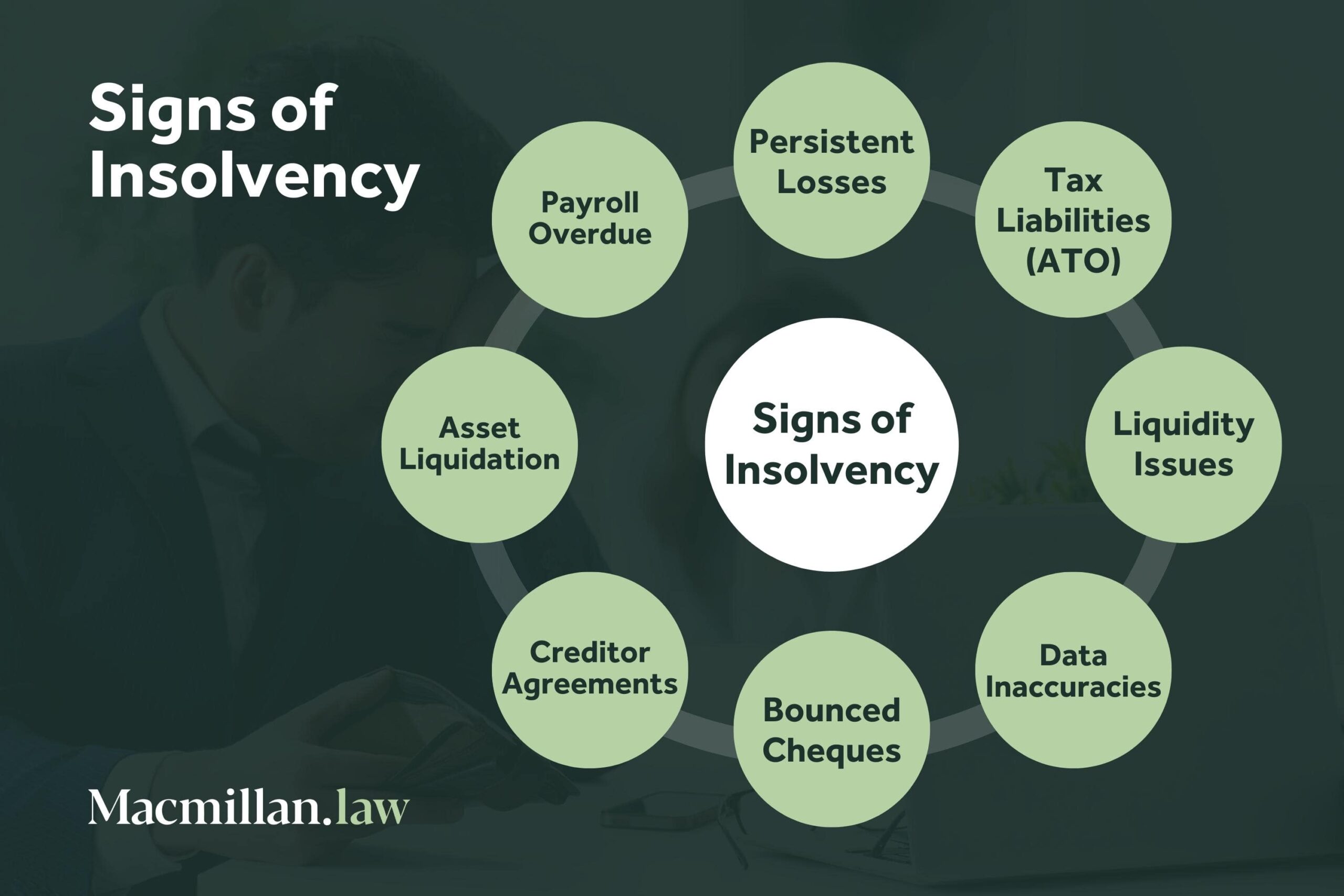The Greatest Guide To Insolvency Practitioner
The Greatest Guide To Insolvency Practitioner
Blog Article
The Main Principles Of Insolvency Practitioner
Table of ContentsIndicators on Insolvency Practitioner You Need To KnowThe Best Strategy To Use For Insolvency PractitionerRumored Buzz on Insolvency PractitionerInsolvency Practitioner Fundamentals ExplainedSome Known Questions About Insolvency Practitioner.Insolvency Practitioner Can Be Fun For AnyoneInsolvency Practitioner - An Overview
Insolvency is when responsibilities are above the worth of the firm, or when a borrower can not pay the debts they owe. A firm can become insolvent because of a variety of situations that cause bad capital. When faced with insolvency, a service or individual can contact lenders directly and restructure debts to pay them off.Organization proprietors may speak to creditors straight and restructure financial obligations into more workable installations. Lenders are generally open to this method since they desire to be settled and stay clear of losses, also if the settlement is on a postponed schedule.
The Main Principles Of Insolvency Practitioner
The owner produces a proposition detailing how the financial debt might be restructured using price decreases or other prepare for support. The proposition reveals financial institutions how the organization might produce adequate capital for lucrative operations while paying its debts. Usually, a forgiven debt might be thought about income by the Irs (INTERNAL REVENUE SERVICE).

An Unbiased View of Insolvency Practitioner
When operations stop, so does the business's earnings (Insolvency Practitioner). Some firms become financially troubled since their goods or services do not develop to fit customers' changing needs.
Expenses go beyond revenues and bills stay overdue. Kinds of bankruptcy consist of cash-flow insolvency and balance-sheet bankruptcy. Cash-flow bankruptcy occurs when a business has the possessions to cover their financial debts but they remain in the incorrect form, such as actual estate rather of liquid funds. Balance-sheet bankruptcy, on the other hand, indicates an absence of properties in any type of kind to cover financial obligations.
The IRS states that a person is financially troubled when the overall obligations surpass complete properties. A insolvency, on the various other hand, is an actual court order that depicts exactly how a financially troubled individual or organization will certainly pay off their lenders, or just how they will market their assets in order to make the settlements.
Things about Insolvency Practitioner

Comprehending the aspects that can result in bankruptcy, such as overspending, can help you protect against bankruptcy and its consequences.
Insolvency Practitioner Things To Know Before You Get This
It is well understood that directors and officers of companies (and managers of restricted liability companies) owe fiduciary obligations to their organizations and their investors (or members). These fiduciary commitments are specified by state laws and, though there are variants from state to state, they generally include an obligation of loyalty and a responsibility of care.
The responsibility of care requires directors and police officers to work out diligence, to make informed decisions, and to act in great confidence so that their activities remain in the very best interest of the business. Though past the range of this conversation, some states enable these tasks to be limited either by so noting in the organizational papers or following various other requirements.
Some Known Factual Statements About Insolvency Practitioner
The majority of states define insolvency in 2 means( 1) when a company's liabilities end up being higher than the sum of its properties or (2) when the business ends up being unable to pay its debts as they come to be dueand welcome both interpretations (Insolvency Practitioner). The change in responsibilities happens since when a company is insolvent, there is no value in the company past that owed over at this website to the firm's lenders so that the equity holders no much longer have an economic stake in the company
Take care about providing shareholders favoritism at the cost of creditors (e.g., licensing and moneying a dividend or a supply redemption). Take care regarding preferential therapy between classes of investors. Clear up efforts to find out all the truths before taking a particular course of activity; supervisors should really believe that any type of choices made are in the ideal passions of the firm in its entirety (i.e., choices will be assessed in hindsight taking into account the effect of such actions on the firm).
In any kind of personal bankruptcy or insolvency proceeding, website link settlements made to certain creditors at the expenditure of various other creditors can be clawed back, particularly if there is some connection in between the firm and the lender. Take into consideration recommending at a yearly shareholder meeting (or any type of various other meeting of stockholders) a resolution verifying that all previous service decisions and actions taken by the directors and officers of the firm were absorbed good belief after a workout of affordable care.
Some Known Details About Insolvency Practitioner
Totally reveal any type of personal or service partnerships with parties beyond of transactions including the company to prevent the look of a conflict of interest. In evaluating prospective Home Page fund elevating transactions or a sale of assets of the troubled company, be conscious that these transactions might be scrutinized later in light of any kind of subsequent growth of supervisors' fiduciary duties to consist of lenders.
Report this page